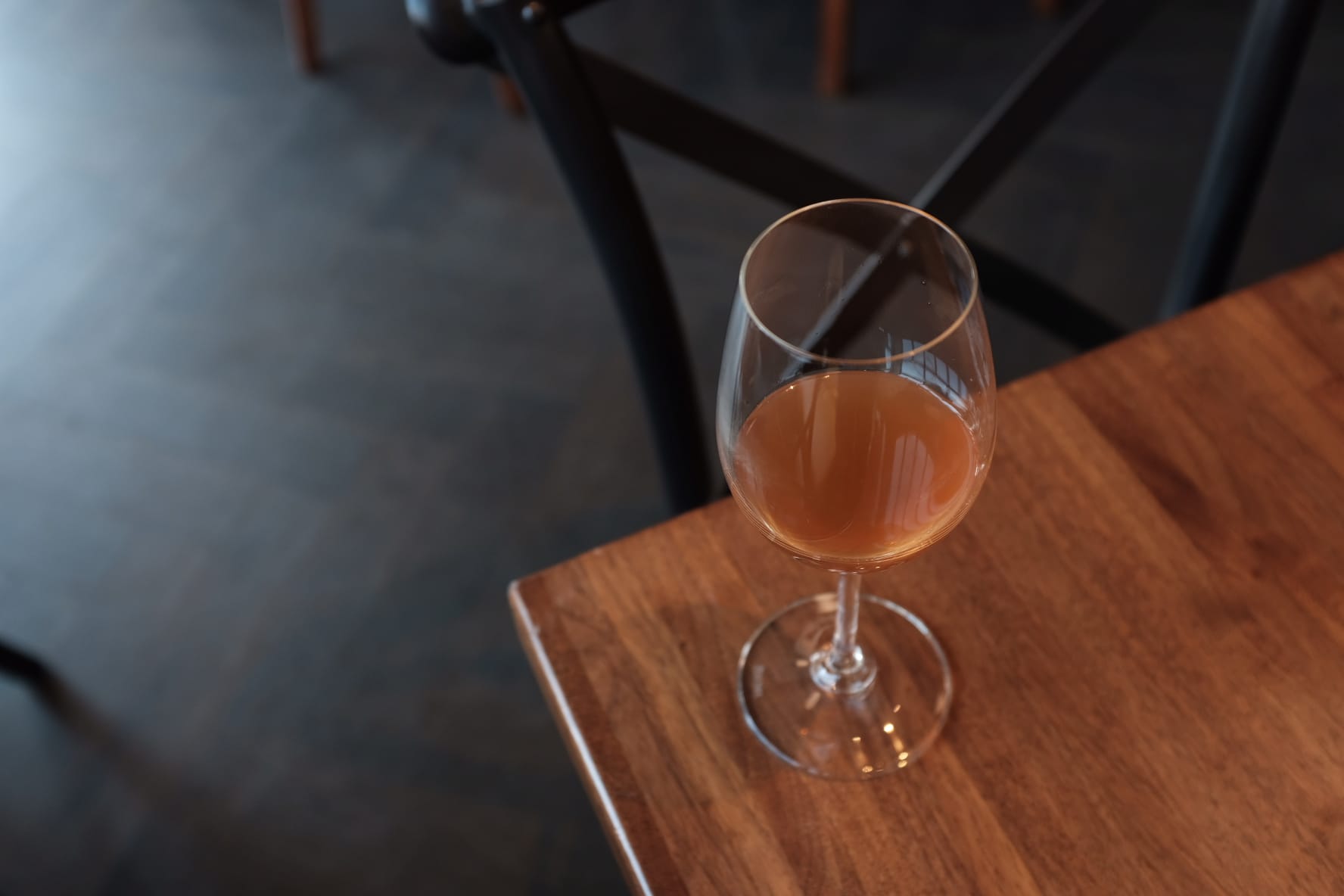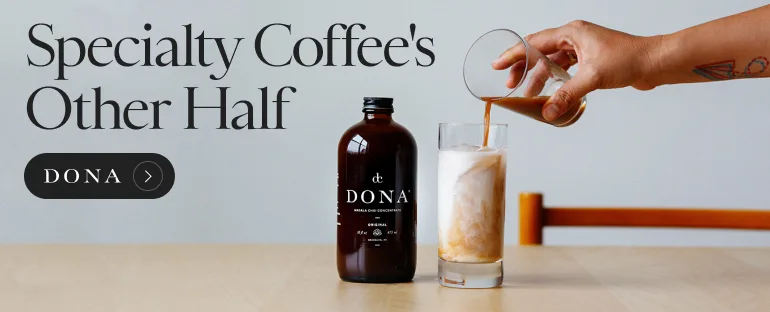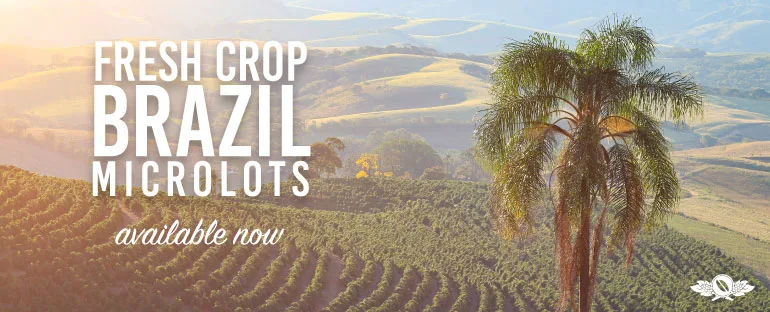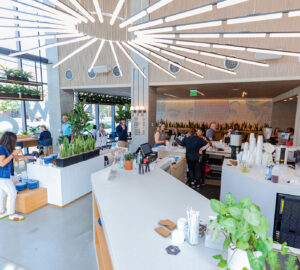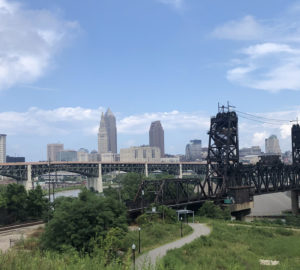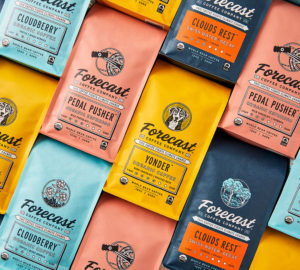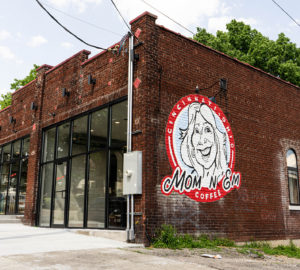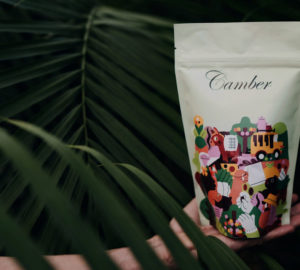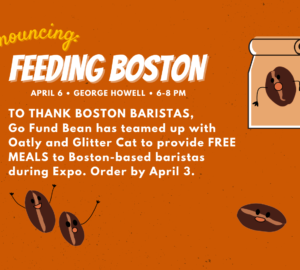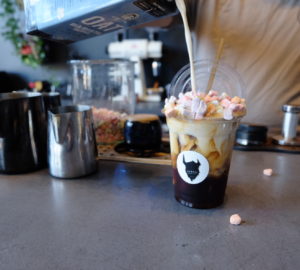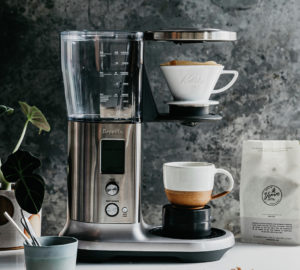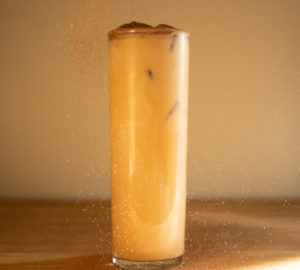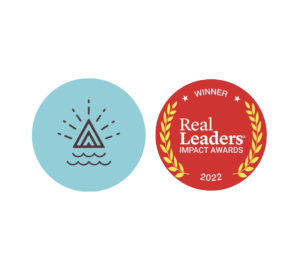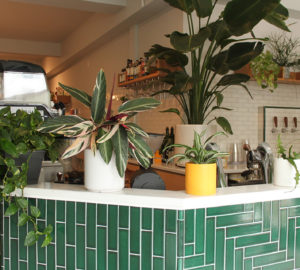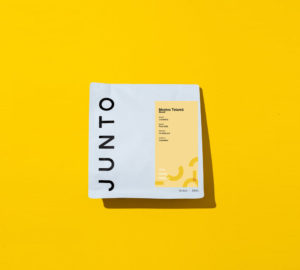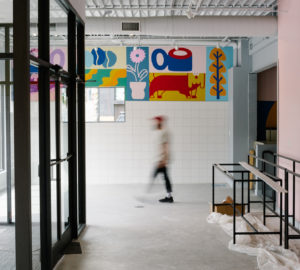Daniel Souder is sitting at the bar drinking a Topo Chico sparkling water when I knock on the door. It’s a rare break for the sommelier-turned-restauranteur afforded by the lone day Pleasantry, the restaurant he co-owns, is closed. It’s barely been a year since Pleasantry introduced Ohio’s first dedicated natural wine list, but Souder and his business partner Joanna Kirkendall have an ambitious plan: change the drinking habits of an entire city.
Located on a quiet, mostly vacant side street in Cincinnati’s Over-the-Rhine neighborhood, Pleasantry is housed in a turn-of-the-century Italianate building. At only 22 seats, the interior is intimate with casual elegance. Arched windows line the wall, a feature that immediately attracted Kirdendall to the space. “It had been a vacant building for 15 years,” says Souder. “We saw the arched windows, and the buttresses on top. It spoke to her more than me, but we went with it.”
Pleasantry marries a hyper-seasonal approach to food with a principled but adventurous beverage program. “I think we have a cohesive message,” says Souder. “We know what’s in our food. We know what’s in our wine.”
For Souder, this means only pouring wines made with terroir-expressive grapes, native yeasts fermentation, and minimal intervention in the cellar. “It’s clean farming,” says Souder. “But it’s also clean winemaking.” The results are typically high in acid but low in alcohol.
“We definitely took a risk by doing it,” says Souder. “It can be so different.” Although Souder is sympathetic toward uninitiated customers, he’s unapologetic about the narrow focus of the menu.
“It’s what we really like to drink. We would be doing ourselves a disservice to do it any other way,” he says. “But a little bit it’s to challenge the public and push our community as a whole to a different style and a different level.”
That includes wines like Justin Dutraive’s ”Les Bulands”, a small Beaujolais producer who is a favorite of Souder’s, though sometimes contentious with customers accustomed to bigger, beefier wines.
“It’s light, it looks like Kool-Aid in your glass, but it is so damn refreshing,” says Souder.
Another surprising wine poured by the glass at Pleasantry is the Via Revolucionary “Brutal” 2016. This orange wine from Mendoza, Argentina is a far cry from the oaky, mass-produced wine the region is known for. The amber-hued “Brutal” showed notes of bitter tamarind and spicy cardamon. “I think [orange wine] is one of the best food wines, because of all of the acidity, fruit, and brightness, but it also has structure and a little bit of tannin,” says Souder. “It’s a very versatile pairing.”
Although Pleasantry is pushing boundaries with their adventurous by-the-glass and bottle menu, they are limited by what is being distributed in the region. Ohio is a control state, which prevents restaurants and bars from buying directly from producers or importers. Souder laments that many of his favorite portfolios, like those of importers Louis/Dressner or Selection Massale, are still not available in the state. But as Pleasantry continues to prove there’s a market for natural wine in Cincinnati, more distributors are expanding their offerings. “It kind of takes a little bit of a leap of faith on the distributors part,” says Souder. ”I see it as a partnership, in a way. I’m relying on them to bring it in, and they’re relying on me to sell it and buy more of it.”
More conservative diners might turn up their nose at some of Pleasantry’s edgier wines—and what a pity. Take winemaker Laurent Herlin’s “Tsoin Tsoin,” a carbonic macerated Cabernet Franc from Bourgueil in the Loire Valley. The body of this wine is effervescent, almost bubbly and it shows the slightest hint of barnyard in the nose. Clocking in at just 11% alcohol, it’s a quaffable red reminiscent of a green pepper and bubblegum flavored soda sprinkled with potting soil.
As a level two trained sommelier, Souder is well-versed in the classics and is quick to admit some natural wines don’t make the cut. “Just because a wine is natural doesn’t mean it’s good, or to our preferences,” says Souder. But for the wines on Pleasantry’s list, Souder is adamant to defend them. “They’re true to their place and their varietal characteristics.”
Upcoming producer events include evenings with Jared and Tracey Brandt of Donkey and Goat in Oakland, and Michael Cruse of Cruse Wine Co., in Petaluma. The city is responding well to this little dining room’s take on real wine, and Pleasantry’s future looks bright. It’s a fact Souder recognizes with understated, Midwestern humility. “We still have a long way to go,” he tells me. “Slowly, surely stuff is matriculating.”
Michael Butterworth (@pilgrimaged) is the publisher of Pilgrimaged, based in Louisville, Kentucky.











